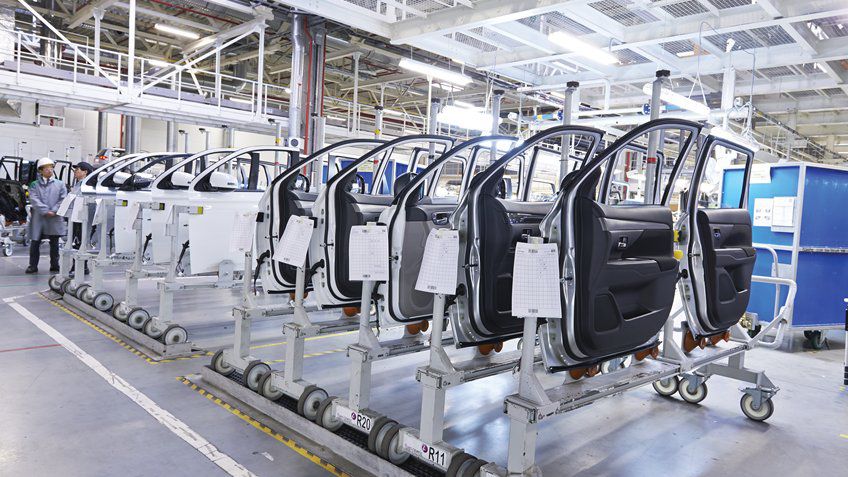The process industry's objectives are simple: increase efficiency and throughput. Some process manufacturers are realizing productivity gains through technological innovations. Segments such as oil and gas and power have invested in new technologies to improve control over complex, often highly interactive processes. Whether multivariable or predictive in nature, these solutions can be costly and complex, creating significant obstacles for adoption by other process industry sectors. While other manufacturers may lack the broader energy industry's resources, their need for growth is equally significant.
McGard LLC is one such manufacturer. Headquartered in Orchard Park, New York, the company produces automotive lug nuts, wheel locks and more. Their proprietary lug nuts keep automobile tires where they belong — on your car. In fact, McGard is a leading manufacturer of mechanical anti-theft devices. For them, the need for improved production efficiency and throughput is the sort of topic that keeps engineering teams up late at night.
Indeed, double-digit growth in demand for McGard's products understates their predicament. When production constraints forced management to invest in additional infrastructure, they simultaneously consulted their engineering team for input on more immediate solutions. Adding new production lines would be a multi-year project. McGard needed a short-term strategy that could run in parallel and deliver immediate improvements.
Cycle Time Conundrum
Dan Corby, plant engineer at the Orchard Park manufacturing complex, played a key role in developing a strategy to increase production. “We assembled a team and focused on the process itself,” he shared. “While we understood the need to reduce the overall production cycle time, the phases of the process that consumed time excessively weren't obvious.”
McGard applies a proprietary and time-intensive approach to the manufacture of its products. Critical to production is a multi-zone furnace and heat treatment process which completes the material transformation. This production phase also represents the primary bottleneck. After batches of semi-finished product enter cold through the furnace they automatically are transferred from zone to zone. Allen-Bradley® ControlLogix® programmable automation controllers (PACs) from Rockwell Automation control the temperature within each zone.
While McGard chose ControlLogix and other Rockwell Automation products based on their reliability and proven uptime, significant drops in temperature still occurred as each batch entered and exited the furnace. With every temperature drop the furnace required valuable time to reestablish the target temperature.
As with most every manufacturer, tight regulation of control loops is a critical success factor. When at temperature, McGard's control system can hold the process within a tolerance of less than 1% or roughly 25°F. The length of time would vary from batch to batch due to other factors, such as the relative mass of different batch sizes.
While the temperature's variability didn't affect product quality, the additional time involved with elevating each batch to reach the designated temperature extended the cycle time unnecessarily, therefore affecting throughput. Mounting market demand forced McGard's engineering team to look for help with their cycle time conundrum.
Complex Challenge
While temperature control is commonplace, its dynamics are by no means simple. Temperature is highly nonlinear, it's relatively slow to respond, and it tends to drift. In terms of nonlinearity, temperature's dynamics vary both at different levels of operation and in their direction (heating vs. cooling). Unlike fast-responding processes such as flow and pressure, temperature changes can be sluggish.
In the case of McGard's furnace, the process required nearly 35 minutes to recover from each drop of 200°F to 225°F in temperature. What's more, convection caused the furnace's temperature to drift after reaching the target temperature. Each of these presents unique challenges. For McGard, the goals of a fast ramp with zero overshoot added to the complexity.
Recognizing the need for additional process control expertise, McGard engaged Manchester, Connecticut-based Control Station (www.rockwellautomation.com/go/p-controlstation), a global member of the Rockwell Automation Encompass™ Partner Program. The collaboration matched McGard's subject matter experts with Control Station's process diagnostic and optimization technologies.

![PlantESP software monitors the performance of PID control loops on a plant-wide basis. It identifies performance issues, isolates the associated root-causes, and recommends appropriate corrective actions. [Click to Enlarge]](https://rockwellautomation.scene7.com/is/image/rockwellautomationstage/esp-hires--graphic-280w.280.jpg)
